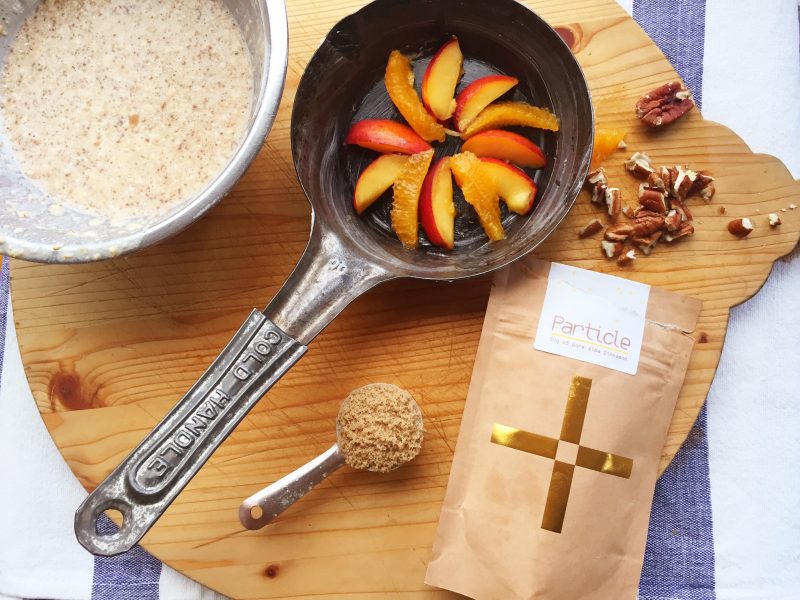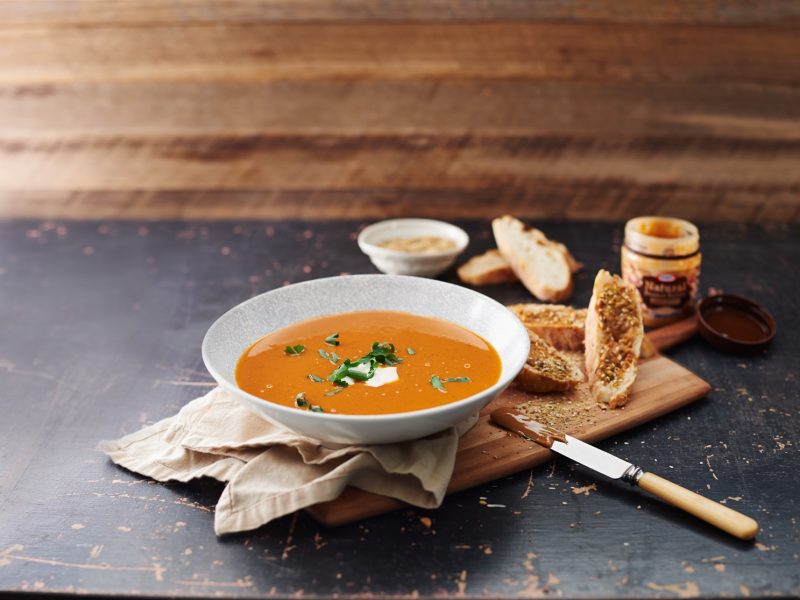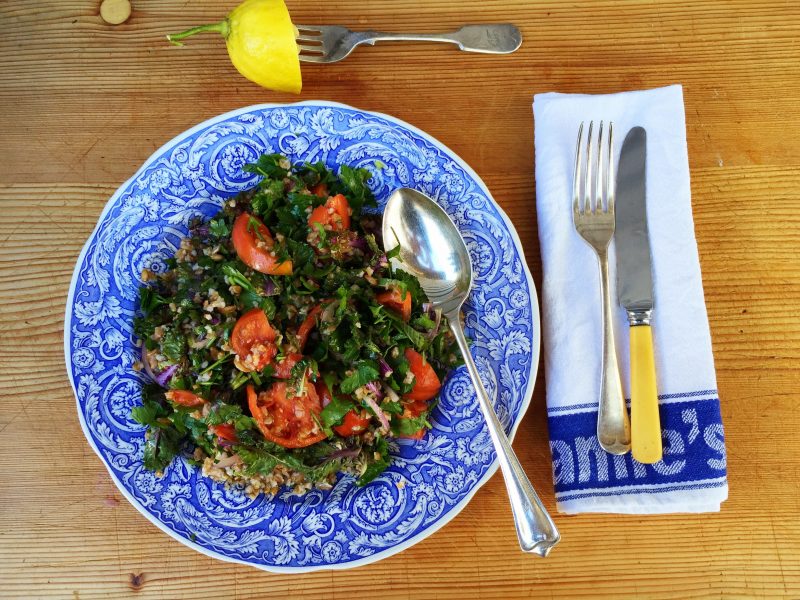You will never guess who our Sub of the Month had the pleasure of interviewing recently thanks to Nuts for Life? World-renowned nut researcher Dr Joan Sabaté – affectionately known as the “Nutty Professor”. They chatted the latest and hot, nutrition news on nuts and health. And he even shared a favourite recipe that we know you will love too. A professor who shares recipes. That’s nuts!
Amy Bowe APD was the Scoop March Sub of the Month. Read her full bio here. Dr Joan Sabaté from Loma Linda University, California is passionate about all things nuts, plant foods and sustainability. His ground breaking research on the link between nut consumption and favorable outcomes for cardiovascular health championed the benefits of good fats at the height of the ‘low-fat’ craze in the 90’s. Read his full bio here.
Nuts, as Jack on Will & Grace once said, “are nothing more than little pellets of fat”– funny, and no one’s going to argue that nuts aren’t high in fat — they are, but that’s not all they have to offer. Thanks to scientific research, nuts have been labeled a ‘superfood’, boasting their ability to help lower blood cholesterol, control blood glucose levels, and aid in weight management. The little pellets are in fact packed full of protein, fibre, vitamins, minerals, phytochemicals and good fats!
So why aren’t Australians getting nutty over nuts?
A key hurdle to encouraging people to eat foods rich in good fats, such as nuts, is fear of weight gain. Here’s what Professor Sabaté has to say in his argument that there are three main mechanisms to help manage weight when you eat nuts regularly.
Nuts are a real whole food. The dense combination of fat, protein and fibre acts to satisfy hunger and reduce appetite. People who snack on nuts end up feeling satisfied longer even with just a handful or two. “When you eat nuts your appetite is reduced, and that means a reduction in energy intake at subsequent meals over the course of one day”, says Sabaté. “But enthusiasm for nuts should be restrained as they are highly caloric (containing between 49 – 76 % fat,) so a 30-50g limit is recommended. This is the amount of nuts that we have consistently demonstrated beneficially effects heart disease risk factors.”
2. Totally absorbed – nut fat is found in your number two’s!
Due to only partial mastication (chewing and breakdown) of nuts plus other factors you actually lose some of the fat in nuts in your number twos! And that means the kilojoules found in nuts are not all absorbed into the body. According to Professor Sabaté 20-30% of fat in nuts is not absorbed, which is around 10-20 % of the energy contained in nuts. “Fat absorption depends on the nut and how well it is chewed – if you chew nuts less you absorb less fat”, says Sabaté. Similarly if you eat whole nuts instead of nut butters less fat is absorbed.
3. Increase your speed – increased metabolism
Some studies show that nuts can increase the metabolic rate by more than 10 percent. “Your body has to work harder to digest foods high in protein such as nuts, this in turn increases your metabolism”, says Sabaté.
Read more about nuts and weight management in the recent Nuts for Life report: The Big Fat Myth. You may also like to read about nuts and heart health and the findings from the landmark PREDIMED study on our archived Scoop post.
Dr. Sabaté’s favourite meal is to make nut meatballs…here’s a similar recipe made into larger burgers courtesy of Nuts for Life.
Cashew and Brazil Nut Burgers Serves 4 – 50g nuts per serve
 Ingredients: 1 cup dry cous cous; 1 tablespoon extra virgin olive oil;100g raw cashews, chopped; 100g raw Brazil nuts, chopped; ¼ cup chopped mint; 2 green onions, sliced; 1 tablespoon chopped flat leaf parsley; 2 eggs, lightly beaten; 1 tablespoon plain flour; cracked black pepper to taste; 1/4 teaspoon ground cumin; 3 cups rocket and baby spinach leaves; 4 tablespoons hummus.
Ingredients: 1 cup dry cous cous; 1 tablespoon extra virgin olive oil;100g raw cashews, chopped; 100g raw Brazil nuts, chopped; ¼ cup chopped mint; 2 green onions, sliced; 1 tablespoon chopped flat leaf parsley; 2 eggs, lightly beaten; 1 tablespoon plain flour; cracked black pepper to taste; 1/4 teaspoon ground cumin; 3 cups rocket and baby spinach leaves; 4 tablespoons hummus.
Method: Place cous cous in a heat proof bowl and pour over boiling water. Water should come about 2cm above the level of cous cous. Cover with plastic wrap and stand for 5 minutes. Remove plastic, add olive oil and fluff up the cous cous with a fork. Refrigerate until cooled. Place the nuts, mint, green onions, basil, egg, flour, pepper and cous cous in a large bowl and mix together until fully combined. Using wetted hands, divide the mixture into eight and shape into patties. Place patties on a baking tray lined with non stick baking paper and chill for 10 minutes. Heat a non stick frying pan over medium heat and spray with oil spray. Cook the patties for 3-4 minutes on each side or until golden brown. Serve with rocket and baby spinach and a tablespoonful of hummus.
Nutrient content per serve
Energy 2552kJ (608kcal), Protein 18g, Total fat 40g, Saturated fat 8g (20% of total fat), Monounsaturated fat 19g, Polyunsaturated fat 10g, Carbohydrates 41g, Fibre 9g, Sodium 106mg.
Editor’s comment:
Thanks Amy. So great that you were free to do this interview. I just love the beaming photo of you two nut lovers! How about you lovely readers? What’s the most creative way you consume a handful of nuts? Love your recipe links or tips below? We’ll be sharing and tagging them with #nutlovers.




